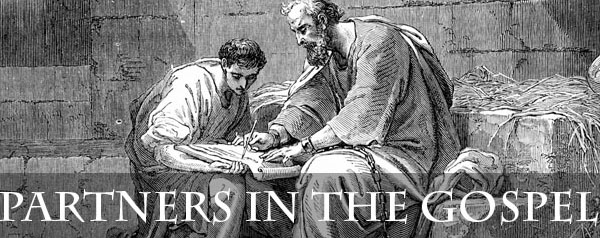Fall 2015: Partners in the Gospel
A few weeks ago as we were gathering for worship I was talking to someone in the narthex before the service who made the observation: “Well the world is as crazy as ever and here we are in church.” I suppose there are at least two ways one could interpret this comment. On the one hand it could mean: “The world is as crazy as ever, so what good is church in the midst of all this craziness?” But it could also mean: “The world is crazy as ever, thank God we can come together to remember that there is something bigger than the craziness.”
Obviously, I would not be in the business I am in if I did not tend toward the latter interpretation.
Each week on Sunday mornings in the Sanctuary at Emmanuel we gather to reorient our lives to this bigger reality. We reconnect with the truth that we belong to the One who created us and desires to be in relationship with us. We are brought together by a common identity and a common need. We are followers of Jesus and we need encouragement to sustain this journey.
St. Paul has a phrase he uses in his letter to the Philippians that describes this reality. He refers to it as a “partnership in the Gospel” (Phil. 1:5 RSV). We come together because we share in the “good news.” We are brought together by the truth that in Jesus Christ we belong to God.
The church is not an institution or organization that is an end in itself. The church is simply a container for something more significant than itself. It holds those who share in the good news. It brings together souls who have a common identity. It gives us a place to gather to remind ourselves of that identity and to encourage one another in the process of living out that identity in our world. We don’t come together for the sake of supporting the church. We come together and become the church because each one of us belongs to God.
Now all of this may sound like hair-splitting, theological “pastor talk,” but understanding this distinction can actually be a liberating and empowering experience for a congregation. It helps us to keep perspective and set priorities. It protects us from the burn out that comes when we exhaust ourselves trying to be a “good church” rather than resting in the identity of being partners in the Gospel. It turns church into a place of energizing encouragement rather than time-sucking obligation.
I would like to explore this distinction in my sermons this fall by spending time in St. Paul’s letter to the Philippians. This letter is a joy-filled celebration of a partnership in the Gospel and as such orients us to the truth of what it truly means to be a “good church.” In this letter, St. Paul directs our attention not to the rules for being a church, but to the love of the One who holds us together. For when each of us turn our faces in the direction of the light of his love, we become partners in the task of reflecting this love in our world.
(Click on a title below to open the sermon page)

